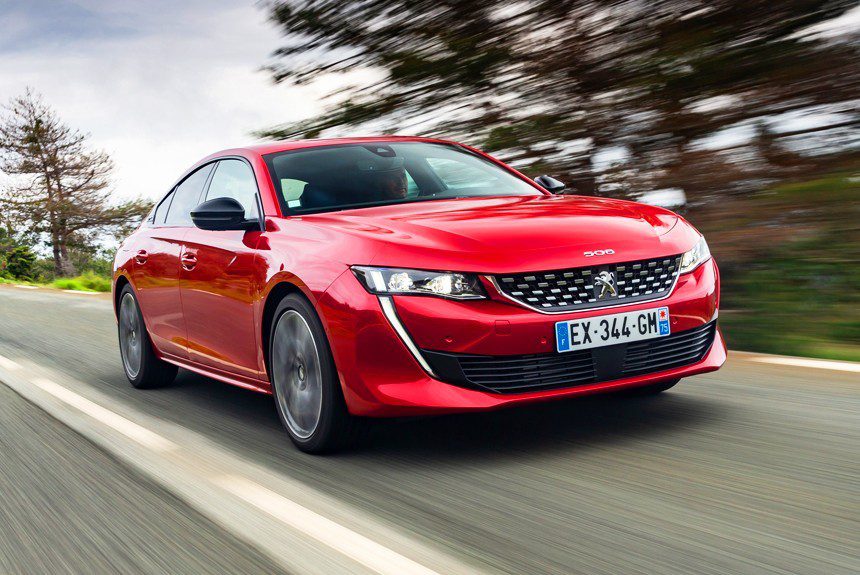
21 Peugeot Facts You Don't Know About
Content
- 21 facts about Peugeot that you hardly heard:
- The big breakthrough is dresses
- The first steam car - and terrible
- The second motorcycle Daimler - and family quarrels
- Peugeot wins first race in history
- The first car stolen in history was Peugeot.
- Bugatti himself worked for Peugeot
- Peugeot sports cars conquer America
- Creates the first hardtop convertible
- The first electric Peugeot has been around since 1941.
- On her bikes 10 victories at the Tour de France.
- Launches the diesel engine on the market
- 203 - the first truly mass model
- Legend in Africa
- Was Car of the Year in Europe six times.
- 504: 38 years in production
- Citroen acquisition
- Chrysler, Simca, Talbot
- 205: Savior
- Purchase of Opel
- Conceptual models
- Their football team is a two-time champion
Today we consider 1885 to be the official birth date of the car, when Karl Benz assembled his Benz Patent Motorwagen (although before that there were cars that worked independently). After that, all modern car companies appear. So how did Peugeot celebrate its 210th anniversary on September 26 this year? This selection of 21 little-known facts about the French giant will give you the answer.
21 facts about Peugeot that you hardly heard:
The big breakthrough is dresses

The company was founded in 1810 by brothers Jean-Pierre and Jean-Frederic Peugeot in the village of Erimencourt in the eastern French province of Franche-Comté. The brothers turned the family factory into a steel mill and began making various metal tools. In 1840, the first coffee grinders for coffee, pepper and salt were born. But a big step towards starting an industrial enterprise was taken when a family member thought of starting to produce steel crinolines for women's dresses instead of the wooden ones that had been used before. This was a great success and prompted the family to tackle bicycles and other more sophisticated equipment.
The first steam car - and terrible

Inspired by the success of bicycles, Armand Peugeot, the grandson of founder Jean-Pierre, decided to create his own car in 1889. The car has three wheels and is driven by steam, but it is so fragile and difficult to drive that Armand never puts it in. sale.
The second motorcycle Daimler - and family quarrels

His second attempt was with a gasoline engine bought by Daimler and was much more successful. In 1896, the company also released its first 8 hp engine and installed it on the Type 15.
However, his cousin Eugene Peugeot believes that it is risky to concentrate only on cars, so Armand founded his own company, Automobiles Peugeot. It wasn't until 1906 that his cousins finally felt the breeze and, in turn, started producing cars under the Lion-Peugeot brand. A few years later, the two companies merged again.
Peugeot wins first race in history

There is some disagreement as to which race is the first ever car race. The first documented and written rule was the Paris-Rouen race in 1894, and was won by Albert Lemaitre in a Peugeot Type 7. The 206 km distance took him 6 hours 51 minutes, but that included a half hour lunch and glass break. wine. The Comte de Dion finished early, but his steamer, De Dion-Bouton, did not live up to the rules.
The first car stolen in history was Peugeot.

This does not sound like a cause for pride at the moment, but it does show how desirable the Armand Peugeot cars were. The first documented car theft took place in 1896 in Paris, when the Peugeot of Baron van Zeulen, a millionaire, philanthropist and husband of one of Rothschild's daughters, went missing. It was later revealed that the thief was his own mechanic, and the car was returned.
Bugatti himself worked for Peugeot

In 1904, Peugeot introduced a revolutionary compact model called the Bebe in Paris. Its second generation in 1912 was designed by Ettore Bugatti himself - at that time still a young designer. The design uses Ettore's characteristic handwriting, which we will later find in his own brand (in the photo of Bebe next to the Bugatti stroller - the resemblance is obvious).
Peugeot sports cars conquer America

The company never achieved great success in Formula 1 - its brief involvement as an engine supplier is not memorable. But Peugeot has three victories in the 24 hours of Le Mans, six in the Paris-Dakar rally and four in the World Rally Championship. However, his racing glory began even longer - since 1913, when a Peugeot car with Jules Gou at the wheel won the legendary Indianapolis 500 race. Success was repeated in 1916 and 1919.
Creates the first hardtop convertible

Today, convertibles with a folding hardtop have almost completely replaced textile ones. The first car of this type was Peugeot's 402 Model 1936 Eclipse. The roof mechanism was designed by Georges Pollin, a dentist, car designer and future hero of the French Resistance.
The first electric Peugeot has been around since 1941.

In the late 19th century, when many manufacturers experimented with electric powertrains, Peugeot remained on the sidelines. But then in 1941 the company, due to a severe fuel shortage during the war, developed its own small electric vehicle called the VLV. The German occupation froze the project, but 373 units were still assembled.
On her bikes 10 victories at the Tour de France.

The company has not broken with its roots. The famous Peugeot grinders are still produced with their original movement, albeit under a license from another manufacturer. Peugeot bicycles have won the Tour de France 10 times, the greatest cycling race between 1903-1983.
Launches the diesel engine on the market

Along with Daimler, Peugeot is the most active in promoting diesel engines. His first such unit was produced in 1928. Diesels are the backbone of the light truck range, but also more luxurious passenger models from the 402, 604 and even up to the 508.
203 - the first truly mass model

After World War II, Peugeot returned to the civilian market with the 203, its first self-supporting car with hemispherical cylinder heads. The 203 is also the first Peugeot to be produced in more than half a million units.
Legend in Africa

Peugeot models from the 60s, such as Pininfarina's own 404, are renowned for their simplicity and enviable reliability. For decades they were the main means of transport in Africa and even today they are not uncommon from Morocco to Cameroon.
When current CEO Carlos Tavares took over the company, he acknowledged that one of his most important goals was to restore that reliability.
Was Car of the Year in Europe six times.

The prize, awarded by an international jury, first went to the Peugeot 504 in 1969. It was then won by the Peugeot 405 in 1988, the Peugeot 307 in 2002, the Peugeot 308 in 2014, the Peugeot 3008 in 2017 and the Peugeot 208 who received this award. Spring.
Six successes put the French in third place in the competition's eternal rankings - behind Fiat (9) and Renault (7), but ahead of Opel and Ford.
504: 38 years in production

The Peugeot 504, which debuted in 1968, is still the company's best-made single model. Its licensed production in Iran and South America lasted until 2006, more than 3,7 million units were assembled.
Citroen acquisition

At the dawn of the 1970s, Citroën was practically bankrupt due to investments in complex and expensive products such as the SM model and the Comotor engine. In 1974, the financially more stable Peugeot bought 30% of the shares, and in 1975 completely absorbed them with the help of a rather generous financial injection from the French government. Subsequently, the combined company was named PSA - Peugeot Societe Anonyme.
In addition to acquiring Citroen, the group briefly controlled Maserati, but was quick to get rid of the Italian brand.
Chrysler, Simca, Talbot

Peugeot's ambitions grew and in 1978 the company acquired Chrysler's European division, which at that time consisted mainly of the French brand Simca and Britain's Rootes Motors, which produced Hillman and Sunbeam, and owned the rights to the old Talbot brand.
Simca and Rootes were soon merged under the revived Talbot name and continued to build cars until 1987, when PSA finally put an end to the losing business.
205: Savior

In the early 80s, the company found itself in a very difficult position due to several unjustified acquisitions. But it was saved in 1983 with the debut of the 205, arguably the most successful Peugeot ever, the best-selling French car ever, and also the most exported. Its racing versions have won the World Rally Championship twice and the Paris-Dakar Rally twice.
Purchase of Opel

In March 2012, American giant General Motors bought a 7 percent stake in PSA for 320 million euros as part of a planned large-scale partnership aimed at joint development of the model and reducing costs. A year later, GM sold its entire stake at a loss of around 70 million euros. In 2017, the French paid 2,2 billion euros to acquire their European brands Opel and Vauxhall from the Americans. In 2018, Opel made a profit for the first time in more than a quarter century.
Conceptual models

Since the 80s, Peugeot designers have established a tradition of creating eye-catching concept models for major exhibitions. Sometimes these prototypes hint at the future development of production models. Sometimes they have nothing in common. In 2018, an online petition garnered over 100000 signatures urging the company to create a truly electric e-Legend concept that caught the attention of attendees at the Paris Motor Show.
Their football team is a two-time champion

Sochaux, the family's hometown, is still rather modest - only about 4000 inhabitants. However, this does not prevent him from having a strong football team founded by one of the heirs of the Peugeot family in the 1920s. With the support of the company, the team became a two-time French champion and a two-time cup winner (the last time was in 2007). The products of the Sochaux Children's and Youth School are players such as Yannick Stopira, Bernard Genghini, El Hadji Diouf and Jeremy Menez.
